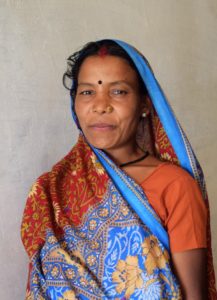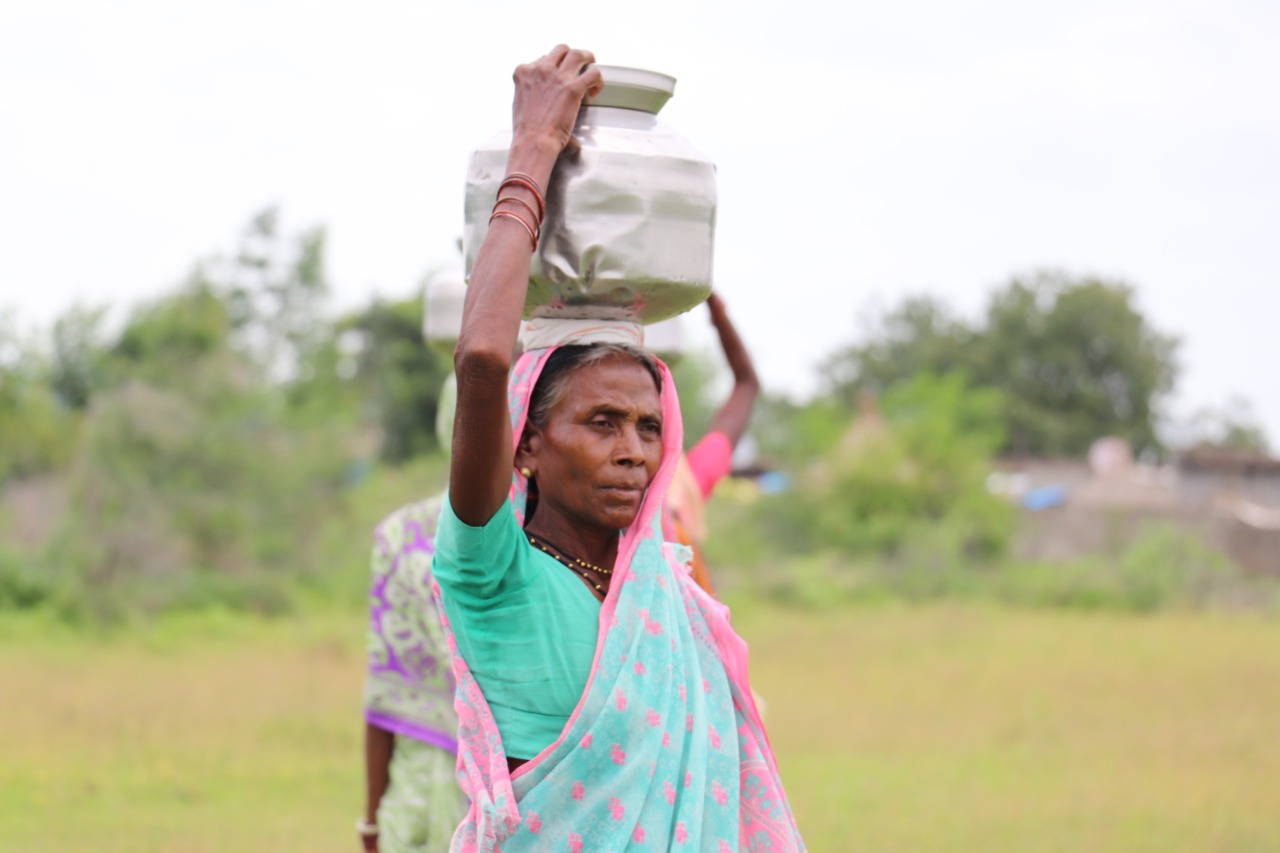- home

- Publication & Resources

- Blog
- ‘Organic farming – because we were tired of struggle’

‘Organic farming – because we were tired of struggle’
A tribal community in this central state of India found out an option of sustainable development for themselves. Read their extra-ordinary success story……………
WHO states that ‘synthetic Urea and pesticides pose risks to human health and the environment. Children may have higher exposures and greater vulnerability due to exposure to pesticides. Synthetic Urea, on the other hand, exerts higher concentrations of ammonia in the soil, making it even more acidic and retarding the soil of its natural fertility.’
Three years back, Subhadrabai was struggling to make maximum produce out of her 2-acre land while her husband had to relocate for a month in search of work.
The lack of sustainable livelihood opportunities in the village made it mandatory for the farmers to leave home in order to survive. The women would either migrate with their husbands or stay at home to take care of children, farms and livestock.
Having lesser experience in farming, Subhadrabai did what little she was instructed by her husband – to sow maize seeds immediately after the first monsoon rain.
But at times when bad monsoons and water scarcity haunted the region, it was a struggle for Subhadra to growth enough to feed her family.
“Buying fertilizers like Urea and pesticides like DAP from market was another financial pressure that I and my husband had to bear. At times we suffered huge losses, especially when growth of the plant stopped or the seeds didn’t germinate,” she says. But the couple could not figure out the reasons behind the failures and low productivity.
Apart from the unhealthy products and the brunt of financial pressures, Subhadra realised that the chemical farming required huge gallons of water, which again became a hurdle considering the fact that the community was largely dependent on rains and did not have irrigation facilities.

Subhadrabai interacting with CASA reporters on sustainable farming in Mandla District in MP.
According to Agriculture scientist Dr B K Rai (a former scientist at Council of Scientific and Industrial Research) , the soil in this particular region is not suitable for chemical farming. “Chemical farming needs a lot of water, which meant that every farmer needs to have its own irrigation system, which is impossible in the village.”
Constant failure and disappointments year after year led to financial crisis. In a market where farmers were producing 10-12 quintals of maize in 2 acres, Subhadra was growing just 2 quintals from the same area.
CASA along with its partner Paryavaran Sanrakshan Adivasi Vikas Kendra (Environmental Conservation and Tribal Development Centre) intervened in the village with a purpose to convey that there still exists a mechanism to maximum and healthy productivity.
Organic Farming was introduced to the adivasi farmers where scientists like B K Rai encouraged them to choose cow urine over urea and DAP pesticide over ‘Jiva amrit’ (a mixture of cow dung, cow urine and other organic wastes). People started making vermicompost, a pit in which they accumulated organic waste for a period and leaving earthworms to decompose the matter. The matter acts as a natural fertilizer with rich ammonia content.
Slowly people started converting uncultivable patches into cultivable ones. In drought-hit villages, vermicompost increased the soil moisture capacity.
CASA also discouraged the practice of ‘scattered seed sowing’ and taught the technique of sowing seeds in rows and columns, therefore increasing the crop yield. The volunteers also taught adivasis about ‘drip irrigation system’ which required minimum water during farming.
“My production doubled. Now I grow 5 quintals of maize. I save a lot of money on synthetic fertilizers. Instead of buying the compost from the market, I make it at my house. As our products are organic, it is in more demand in the markets. People want to eat healthy products. I encourage others in my village to follow the same method,” Subhdrabai says.
Subhadra identifies herself as ‘self-sufficient’ and has inspired women like Parvatibai of nearby Bhatgaon village. Parvati started growing turmeric using organic farming with CASA’s help. She and her husband have been making vermicompost at their house and they carry farming activities round the year, even when sky does not bless the land with rains.
“The organic farming has created such an impact that a village in Niwas block (MP) has recorded 100 per cent organic farming practiced by its people,” Centre’s co-founder Aradhana Rai says.
 Previous Blog Post An Adivasi and a woman, and the need to protect her rights
Previous Blog Post An Adivasi and a woman, and the need to protect her rights Cyclone Vardah Wreaks Havoc in Tamil Nadu and Andhra Pradesh
Cyclone Vardah Wreaks Havoc in Tamil Nadu and Andhra PradeshFeatured Post

International Women’s Day -2021
8 Mar 2021
International Women’s Day -2021 is very special for CASA. It’s a delight to announce, CASA with the support of the Church of Sweden has launched an exclusive Gender Desk to emphasise the importance of Gender Justice work. CASA has been working for Gender Justice all throughout and across our constituencies in all these years. Gender Desk comes to add vigour […]

Overcoming Gender and Poverty Barriers
Poverty has been an inevitable problem in India since the beginning of time. The increasing problems of poverty caused by overpopulation and the unequal distribution of wealth among the people have led to a huge impact on the life of millions in the rural as well as the urban area. A person has to acquire […]

Impact of Climate Change on Women
16 Jan 2021
Climate change is a prevailing problem globally whose hazardous repercussions extend beyond the environment. Shrinking glaciers, extinction of plants and animal species, mutation, rise in the Earth’s average temperature and triggered seasonal fluctuations, are some of the impacts of climate change that have already grabbed the headline. Certain early predictions pertaining to climate changes had […]



